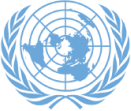SEVENTY FIRST SESSION OF THE UN GENERAL ASSEMBLY
SECOND COMMITTEE
19 October 2016
New York
STATEMENT BY H.E. MR. SUKHBOLD SUKHEE, AMBASSADOR EXTRAORDINARY AND PLENIPOTENTIARY AND PERMANENT REPRESENTATIVE OF MONGOLIA TO THE UNITED NATIONS
(Agenda Item 22 (b): Groups of countries in special situations)
Mr. Chairman,
My delegation associates itself with the statements made by the distinguished representatives of Thailand on behalf of the Group of 77 and China as well as of Zambia on behalf of the Group of LLDCs.
I wish to speak in my national capacity on Agenda item 22, specially on sub-item Follow-up to the Second United Nations Conference on LLDCs.
Mr. Chairman,
LLDCs continue to face considerable challenges inherently linked to their geographical handicap. They are among the hardest hit by the global economic slowdown, failing commodity prices, food and energy shortages along with serious impact of climate change. These challenges do affect not only economic growth, but have major implications for social and environmental aspects of development thus affecting the implementation of both the VPA and respective SDGs.
International assistance for export diversification, value-addition, infrastructure development, institutional and productive capacity-building and better market access are essential for LLDCs.
Mr. Chairman,
Sub-regional and regional cooperation play an important role in advancing the VPA objectives.
During the tripartite Summit meeting between Mongolia, China and Russia last June in Tashkent, an agreement on establishing an economic corridor and a customs cooperation agreement were signed. Currently, Mongolia has proposed to establish an Investment Center in Ulaanbaatar to mobilize funding as well as a Regional Cooperation Planning Center to carry out coordination and feasibility studies for projects along the economic corridor.
Furthermore, Mongolia together with its two neighbors is finalizing an Intergovernmental Agreement on International Road Transport along the Asian Highway Network. It will become a historic trilateral transit agreement.
As part of its efforts to join regional economic integration, Mongolia has successfully concluded negotiations with all 6 participating States of the Asia-Pacific Trade Agreement (APTA). We expect the domestic ratification process to be completed by the end of this year.
Mr. Chairman,
At the national level, Mongolia is committed to implement the relevant goals set forth in the 6 priority areas of the VPA. They are reflected in our national development strategy, including Mongolia’s 2030 Sustainable Development Vision and the Government’s Action Program for 2016-2020.
In April this year, the Ministry of Foreign Affairs of Mongolia together with the International Think Tank and the Office of the High Representative for the Least Developed Countries, Landlocked Developing Countries and Small Island Developing States organized in Ulaanbaatar a national workshop on the implementation of the Vienna Programme of Action. Representatives of relevant line ministries, private sector and academia learned about the specific means of mainstreaming the VPA into national and sectoral development plans in the areas of transit issues, infrastructure development, trade facilitation, structural transformation and commodity value chains.
Mr. Chairman,
Lastly, I wish to point out the importance of undertaking research and analysis on the impact of landlockedness. In this regard, the project entitled “The Research on Economic Diversification of LLDCs: Cases of Mongolia, Bhutan, Nepal and Paraguay”, supported by the Perez-Guerrero Trust Fund for South-South Cooperation and implemented by the International Think Tank for Landlocked Developing Countries from 1 January 2017 will be instrumental in providing evidence-based policy recommendations to assist the LLDCs on how to build their productive capacities, diversify their economies and undergo structural transformation.
I thank you.


